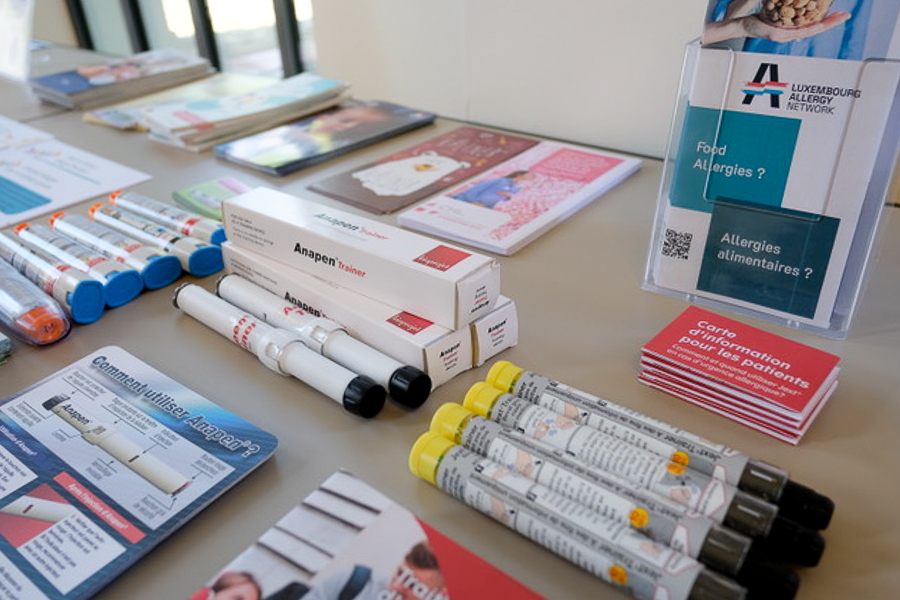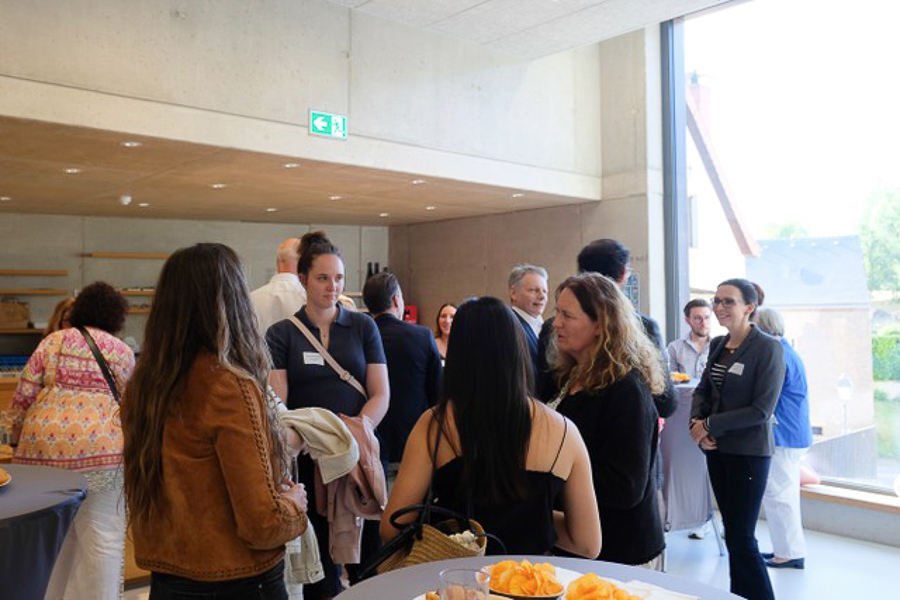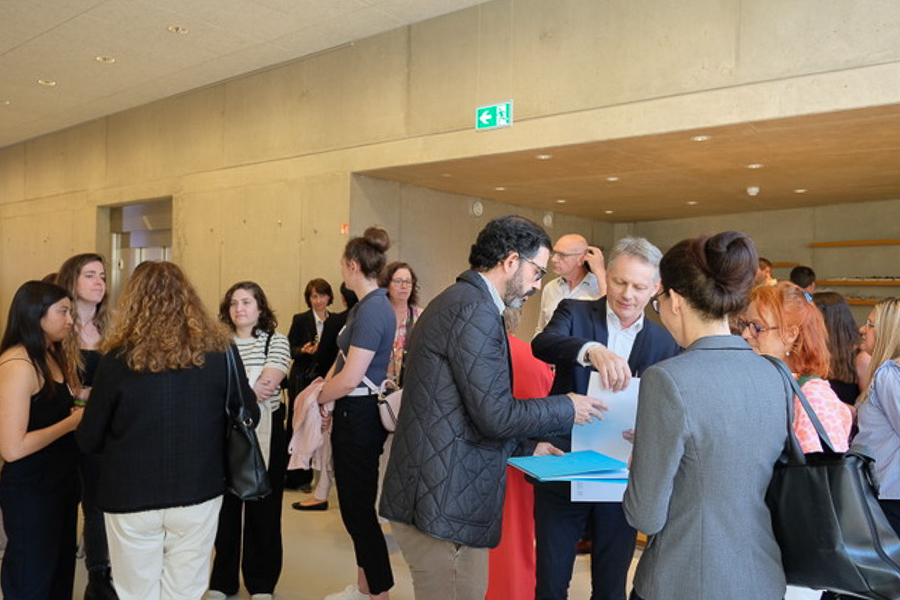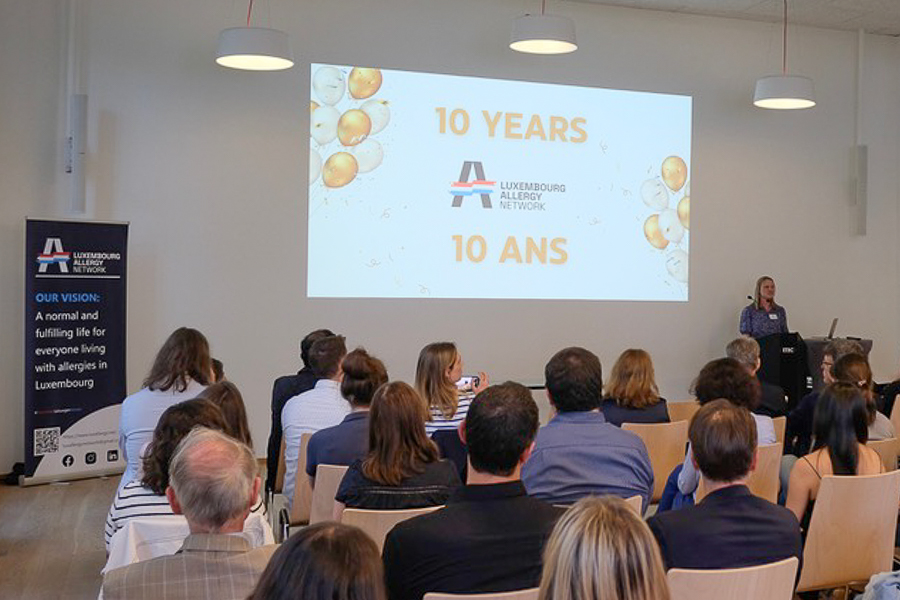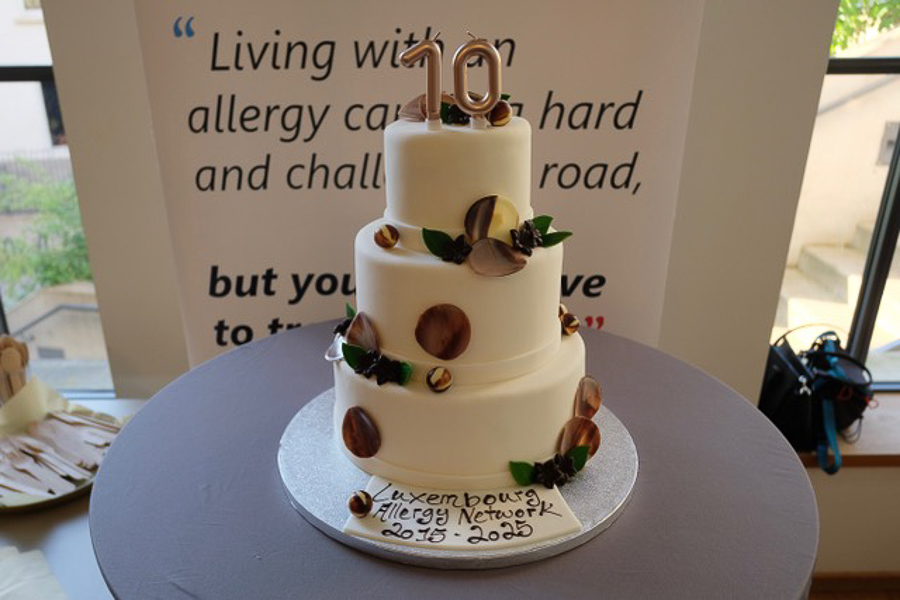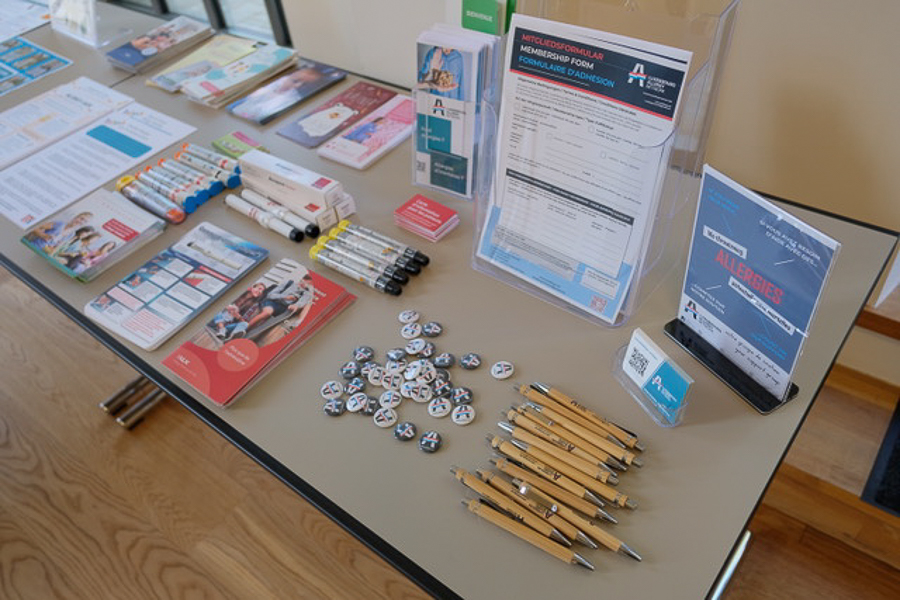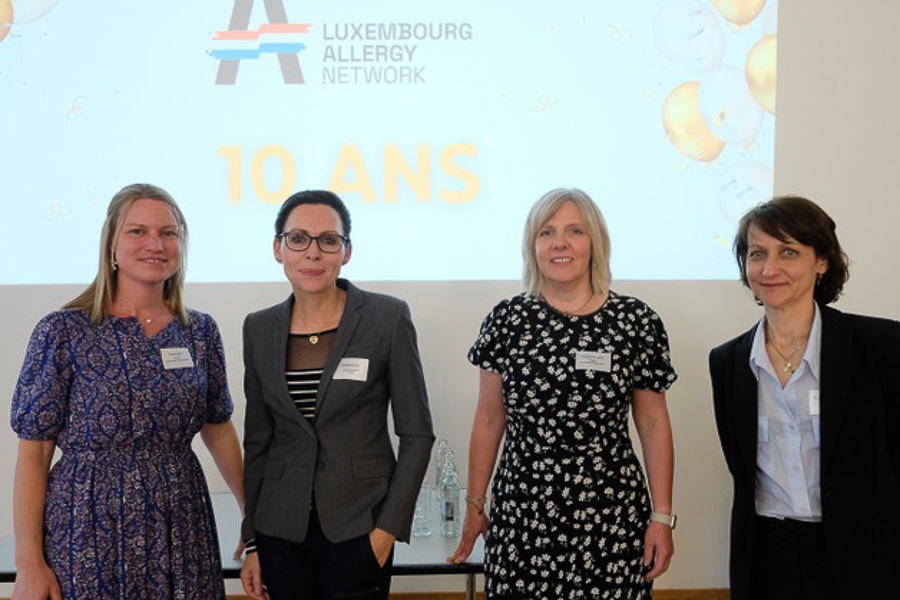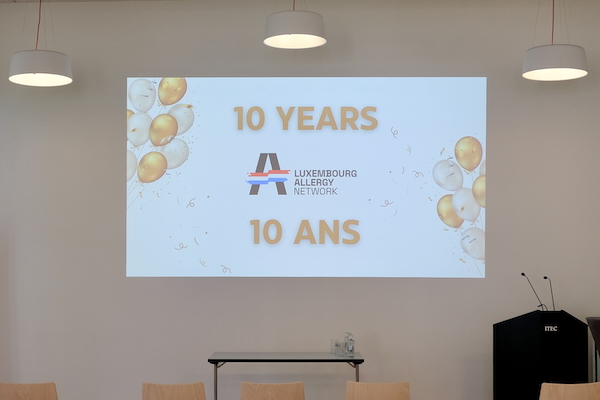 Luxembourg Allergy Network Celebrates 10 Years;
Credit: Steven Miller, Chronicle.lu
Luxembourg Allergy Network Celebrates 10 Years;
Credit: Steven Miller, Chronicle.lu
On the evening of Tuesday 13 May 2025, the Luxembourg Allergy Network Asbl (LAN) celebrated its ten-year anniversary with an event at the Drescherhauss cultural centre in Luxembourg-Dommeldange.
The event featured speeches by President of the LAN, Tamara Smit, Founder and Treasurer of the LAN, Nicky Wallace, Allergist at Kannerklinik CHL, Dr Françoise Morel, and Principal Investigator at the Luxembourg Institute of Health (LIH), Annette Kuehn. Over the course of the event, the speakers detailed the experiences of parents, patient and medical staff in dealing with the challenges of food-related allergies.
Tamara Smit opened the event by welcoming guests and congratulating the founding members of the network for their dedication and commitment over the previous ten years and helping to establish a community dedicated to “increasing support, understanding and information around food allergies” in Luxembourg. She then described the challenges faced in Luxembourg for those who suffer from food-related allergies. She said: “For many, this is a lifelong condition that cannot be outgrown. While food allergies are an invisible illness, they can bring very real and very serious challenges, from health risks to social stigma. Many patients share with us that they feel very isolated and overwhelmed after the diagnosis, often knowing no one else in their family or friend group who lives with such a condition.”
Nicky Wallace subsequently detailed the experiences of her family up to and after her son’s initial allergy diagnosis, the daily challenges of dealing with the severity of his allergies, the difficulty in educating others on the severity of food-related allergies and ultimately recognising the need to establish the LAN for the benefit of everyone who suffers from or cares for those with food-related allergies in Luxembourg. She noted: “We are all volunteers and all parents of kids living with food allergies. We have a diverse skill set among us and I believe that is what has allowed us to be where we are today.” She then detailed how the LAN provides non-medical support in three languages, is present at the CHL KannerKlinik (Centre Hospitalier de Luxembourg) on a monthly basis to provide support for those impacted by food-related allergies and visits schools and workplaces to provide workshops in an effort to “raise awareness, not just of allergies themselves, but of the challenges the allergic individual faces on a daily basis”.
Tamara Smit then provided examples of parents who had experienced raising a child with food-related allergies and the difficulties in receiving diagnoses and support from the medical community in the Grand Duchy. She described the stories of young children suffering from issues such as skin rashes, vomiting and lethargy who were initially misdiagnosed by paediatricians, dermatologists and doctors before, after months and, in some cases, years of experiencing physical problems, were finally diagnosed with food-related allergies. She also noted the challenges of finding a suitable creche or school which can provide the necessary assurances for the parents of children who suffer from food-related allergies. She also described the frustration of the waiting times involved in securing an appointment with a paediatric allergist, which have extended from an initial six months to around eighteen months, today. She concluded: “To tackle many of the problems we saw in the patient stories, we need early diagnosis, better access to care, better emergency preparedness, better allergy management at schools and increased awareness.”
Dr Françoise Morel talked of her work as Director of the non-profit organisation the Centre for Epidemiological Data Analysis and provided detailed information on the issues and risks suffered by those with food-related allergies across their lifetime. In relation to the increase of those suffering from food-related allergies in the Grand Duchy, she noted: “If we do an extrapolation on the data of the Luxembourgish population in 2022, we can estimate that in 2050, 70,000 children and adolescents will have an allergy, that 1,800 to 3,000 young children, of preschool age, will have a food allergy.” Dr Morel then spoke of the processes behind the variety of tests which must be undertaken as part of any diagnosis, the impacts of anaphylactic reactions, the use of adrenaline as an initial treatment for allergic reactions and the successes and difficulties involved in providing immunotherapy treatment. She also stressed the importance of early diagnosis and how this is essential in reducing the severity of allergies and its importance in providing successful immunotherapy treatment.
Annette Kuehn began her speech describing her work with the LIH and how they investigate the immune response of the patients by studying different types of immune cells, markers in the blood, antibodies and the gut microbiome of patients in an effort to better understand their issues and make advances in clinical care. She detailed how these advances can then be used to contribute to clinical guidelines for diagnosing and treating those with food-related allergies. She then talked of the technology being used to detect allergies and explained that it is now possible to obtain antibodies and allergen-specific signatures for over 300 different allergen sources in a single test. In closing, she described her work and that of the LIH and its partners as striving to create “a healthy lifestyle” for sufferers and to work towards preventing allergies as well as just treating them.
The event concluded with a networking session, where attendees were invited to enjoy drinks and refreshments while discussing the topics raised during the event.
Further information on the work of the Luxembourg Allergy Network can be found at: https://www.luxallergy.net/

